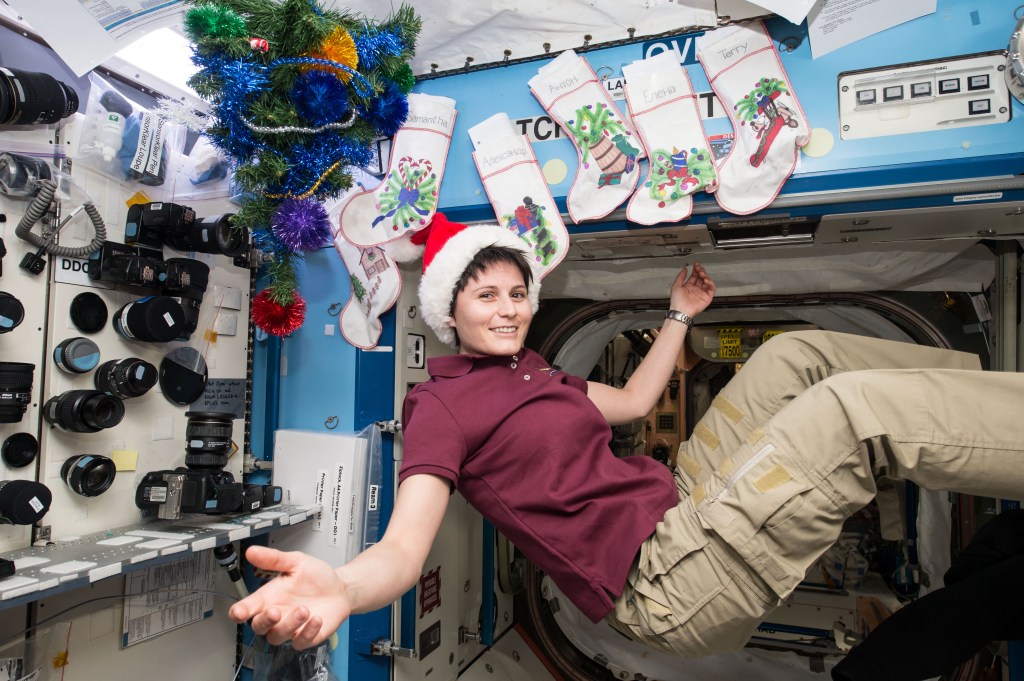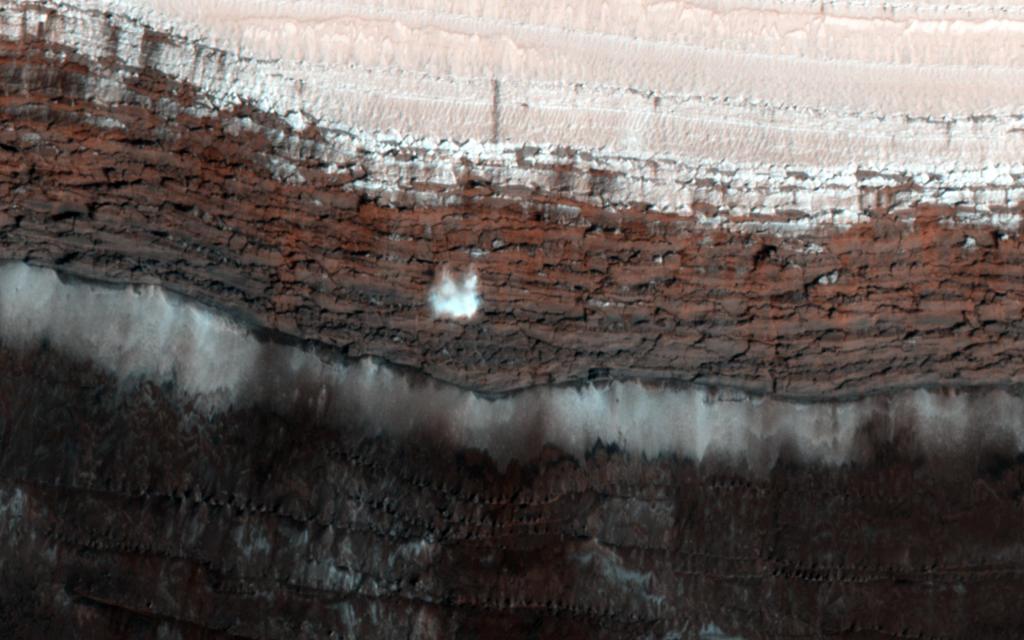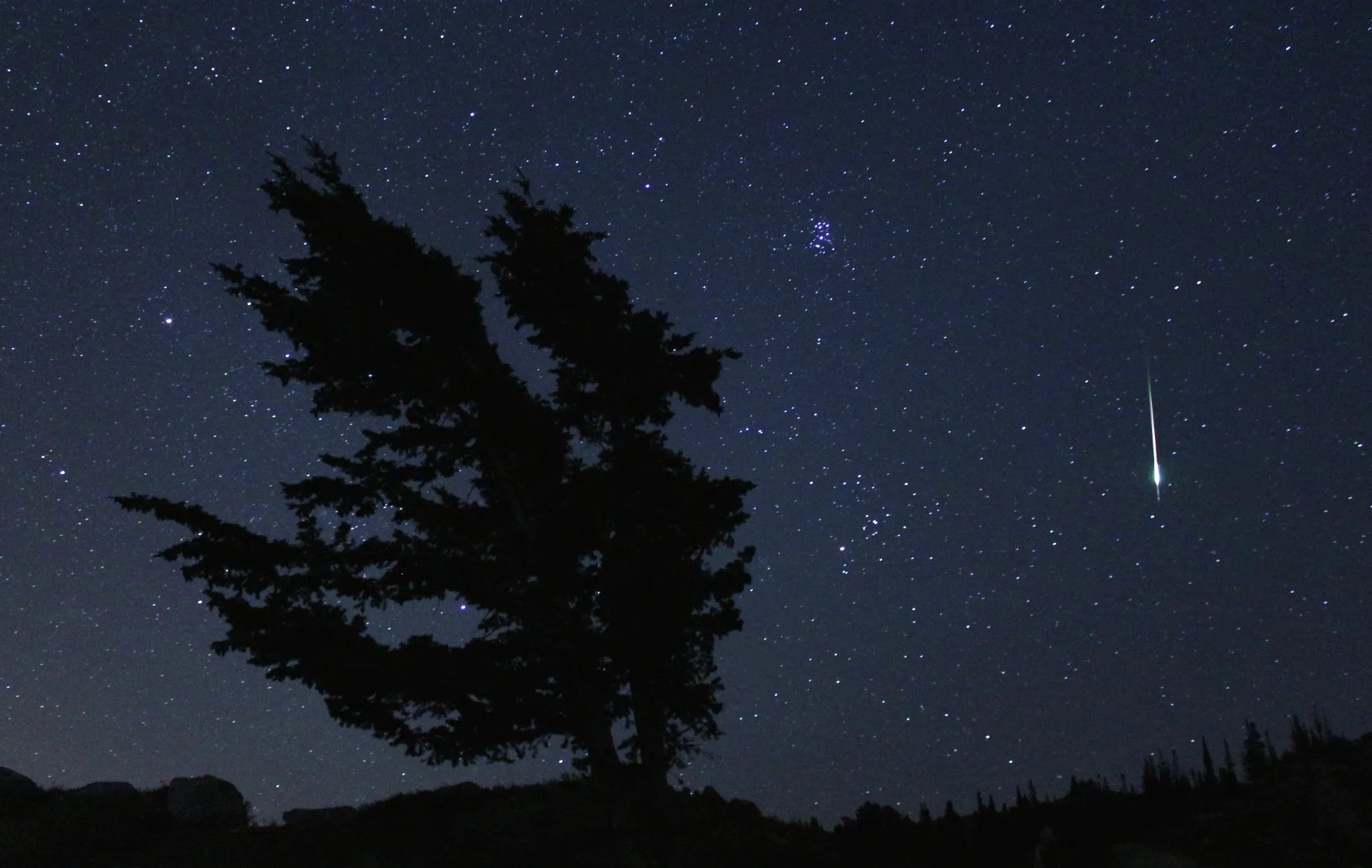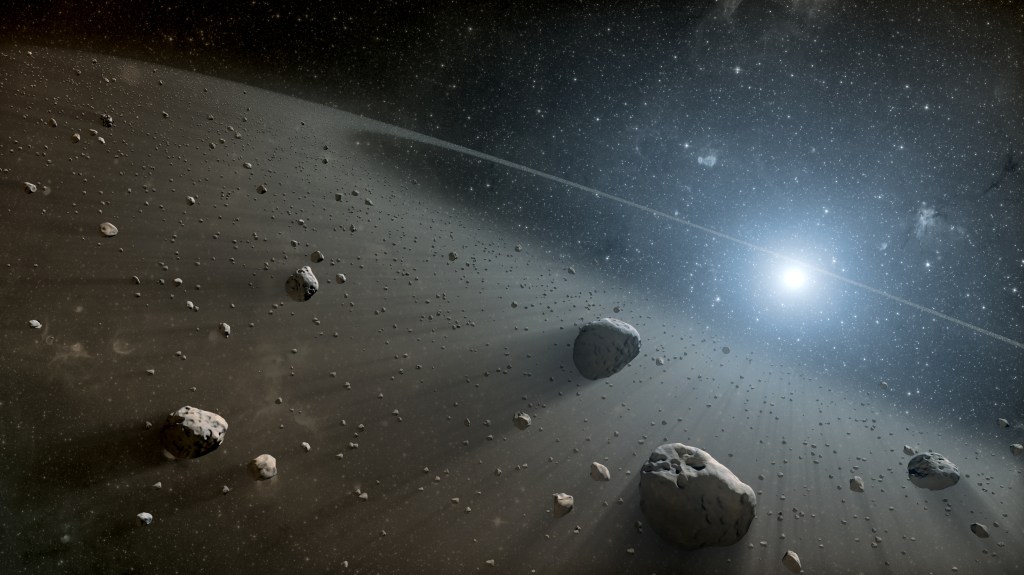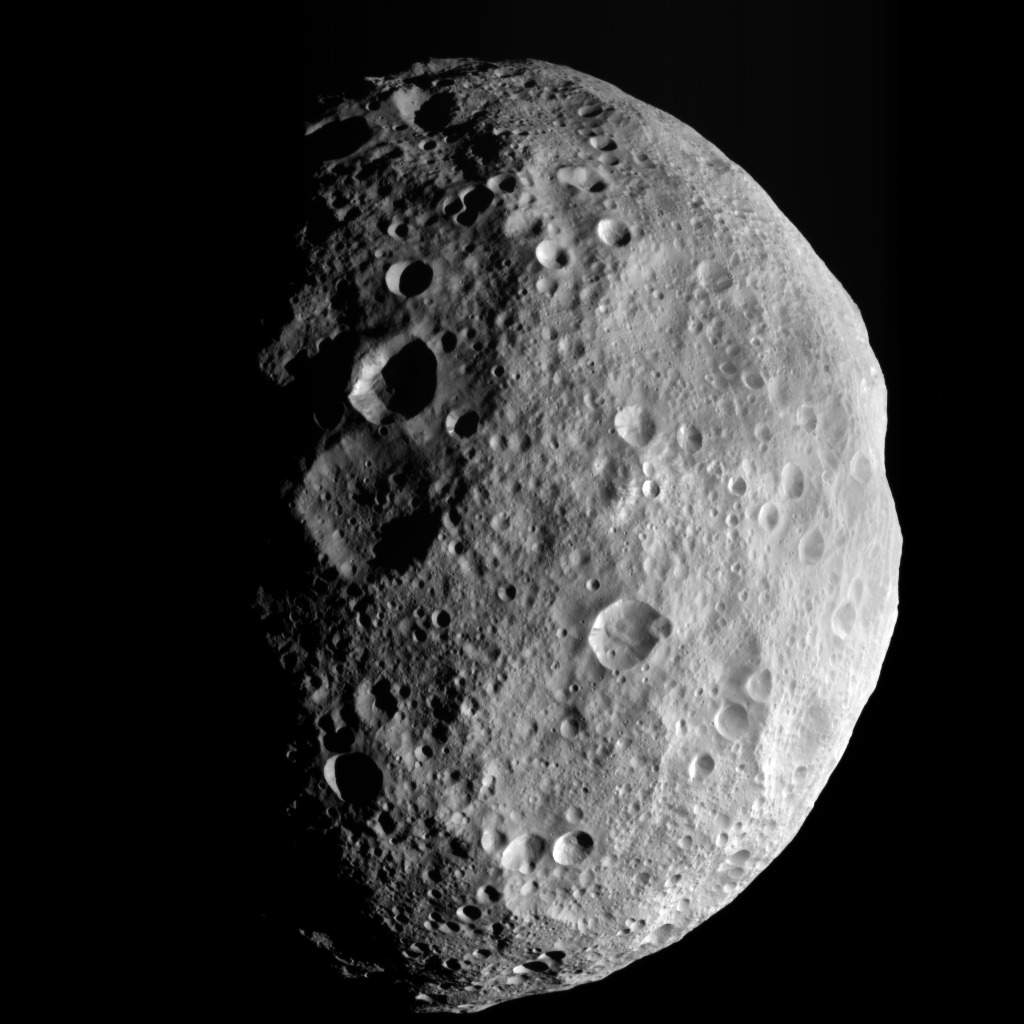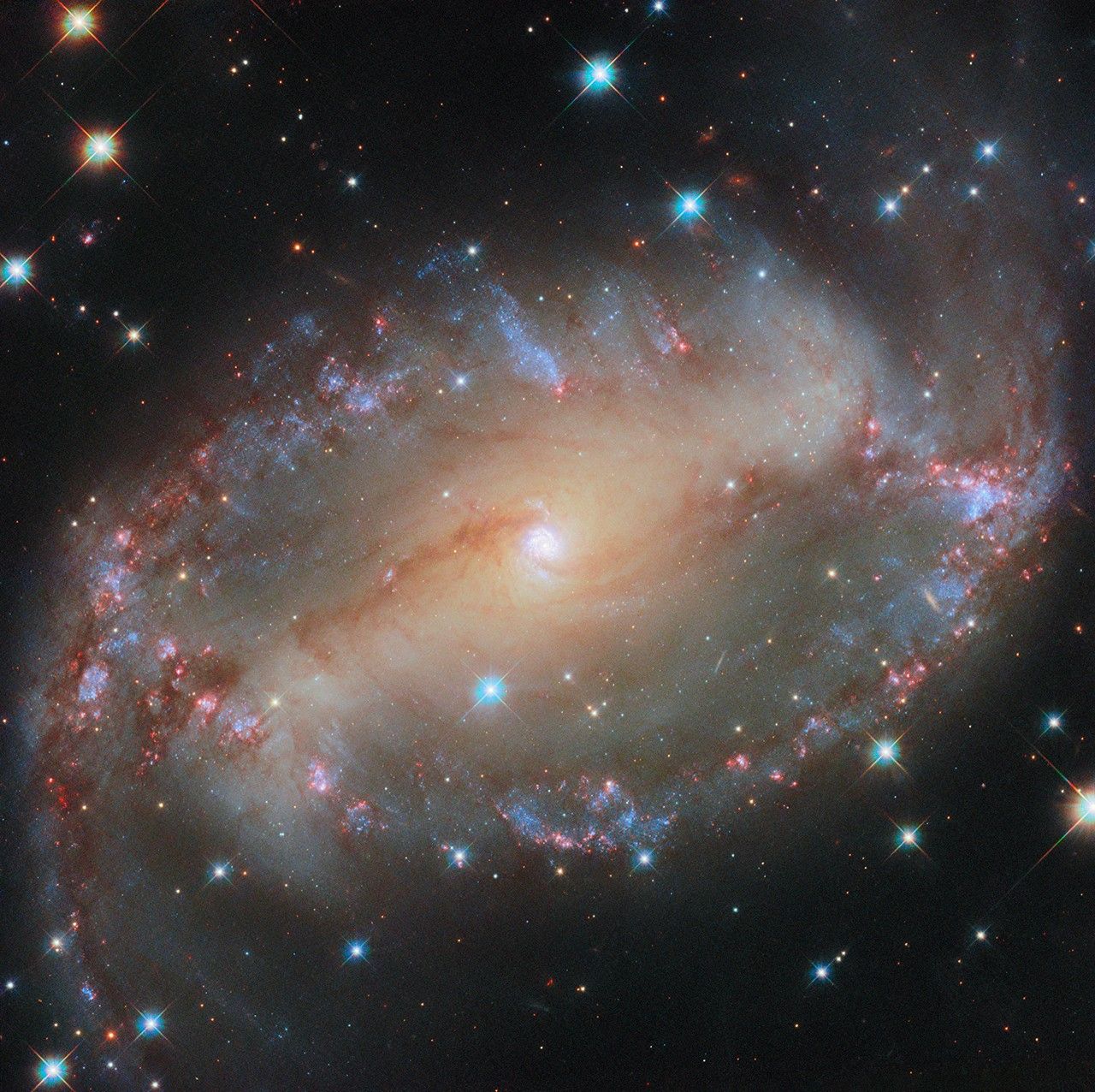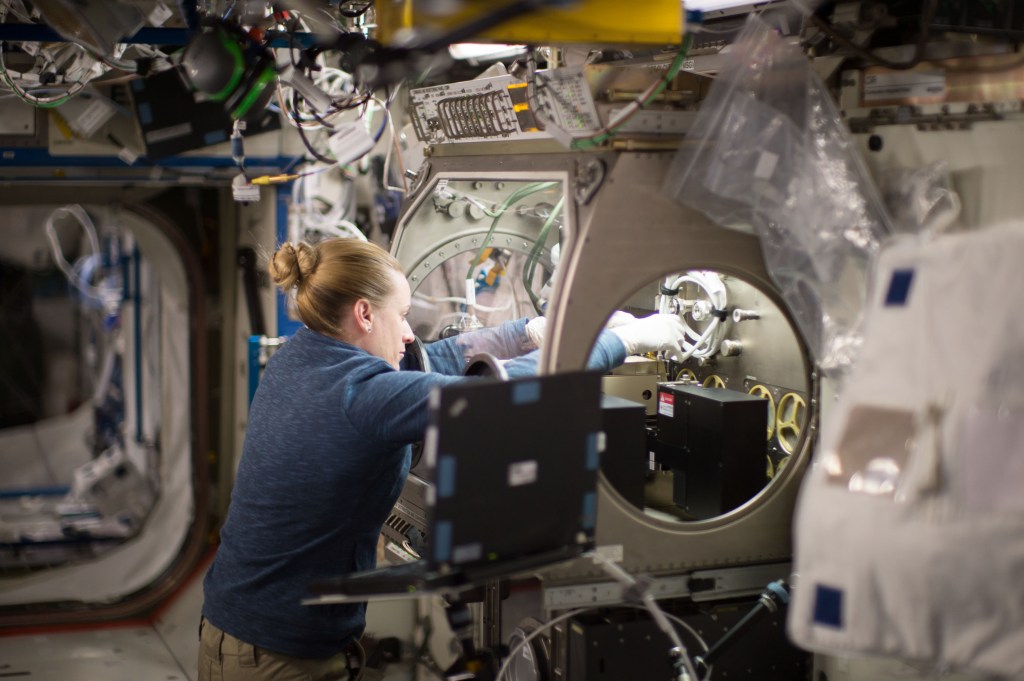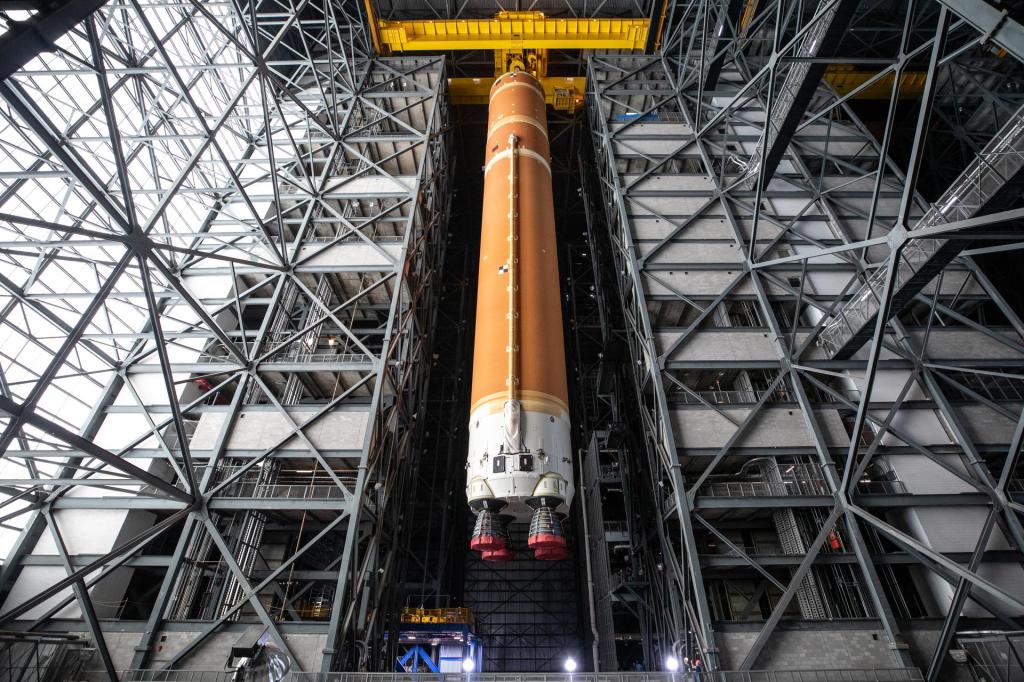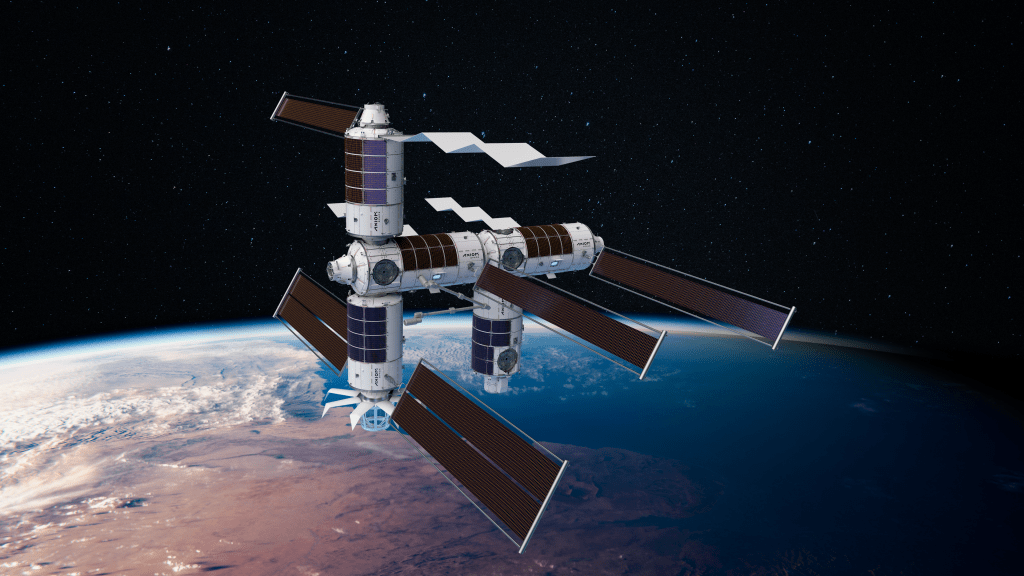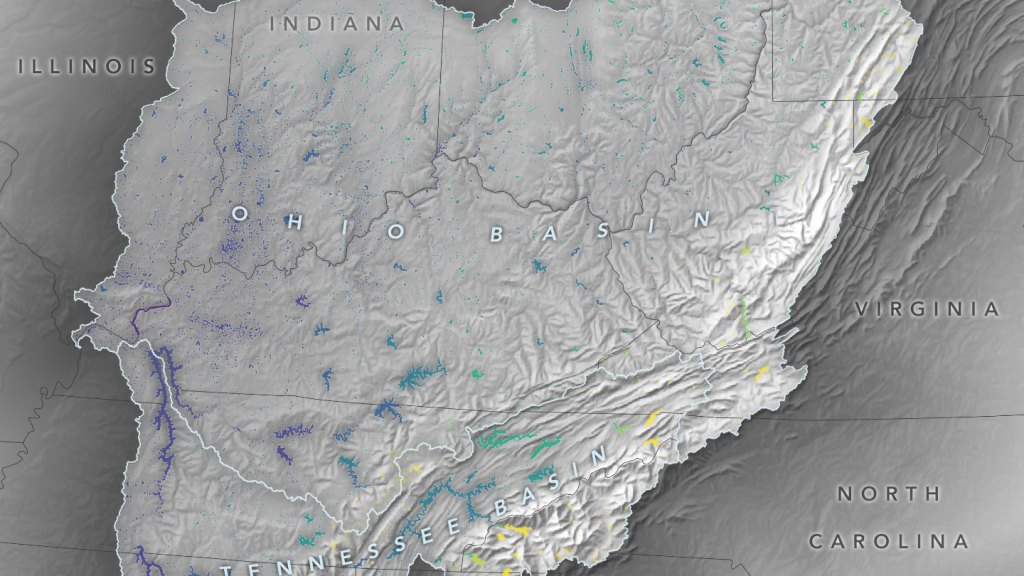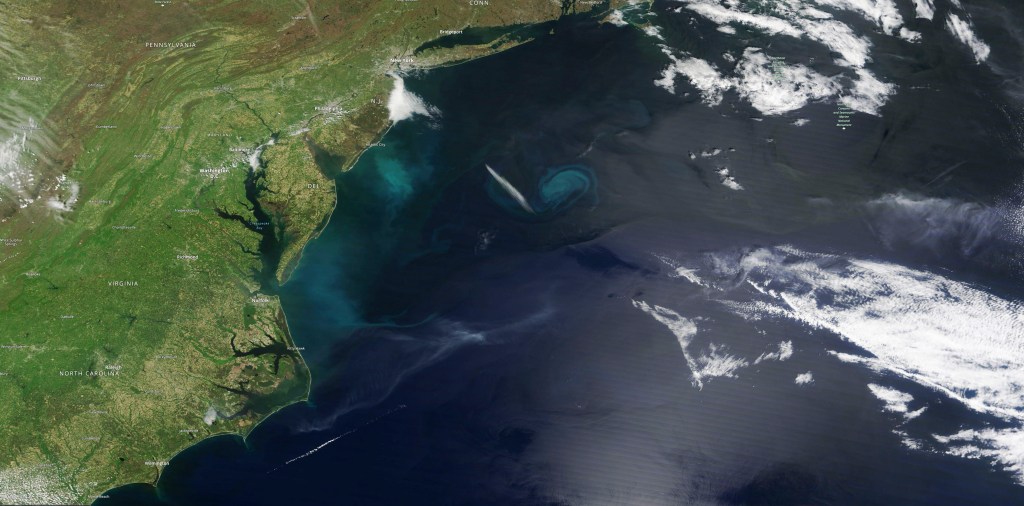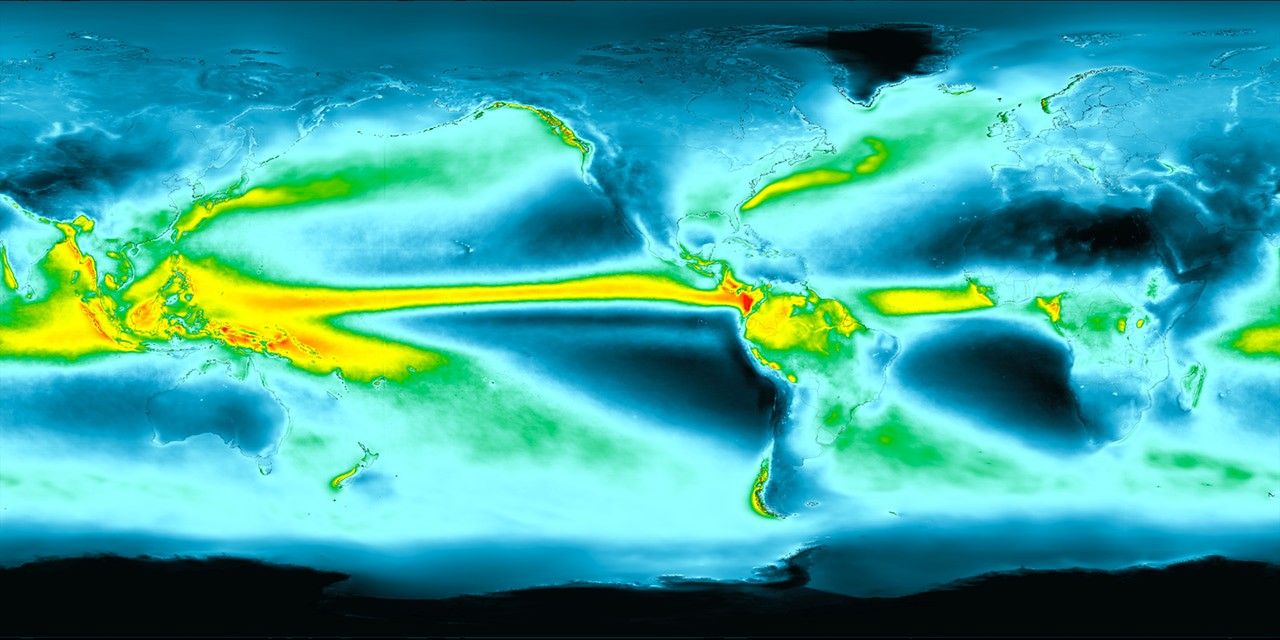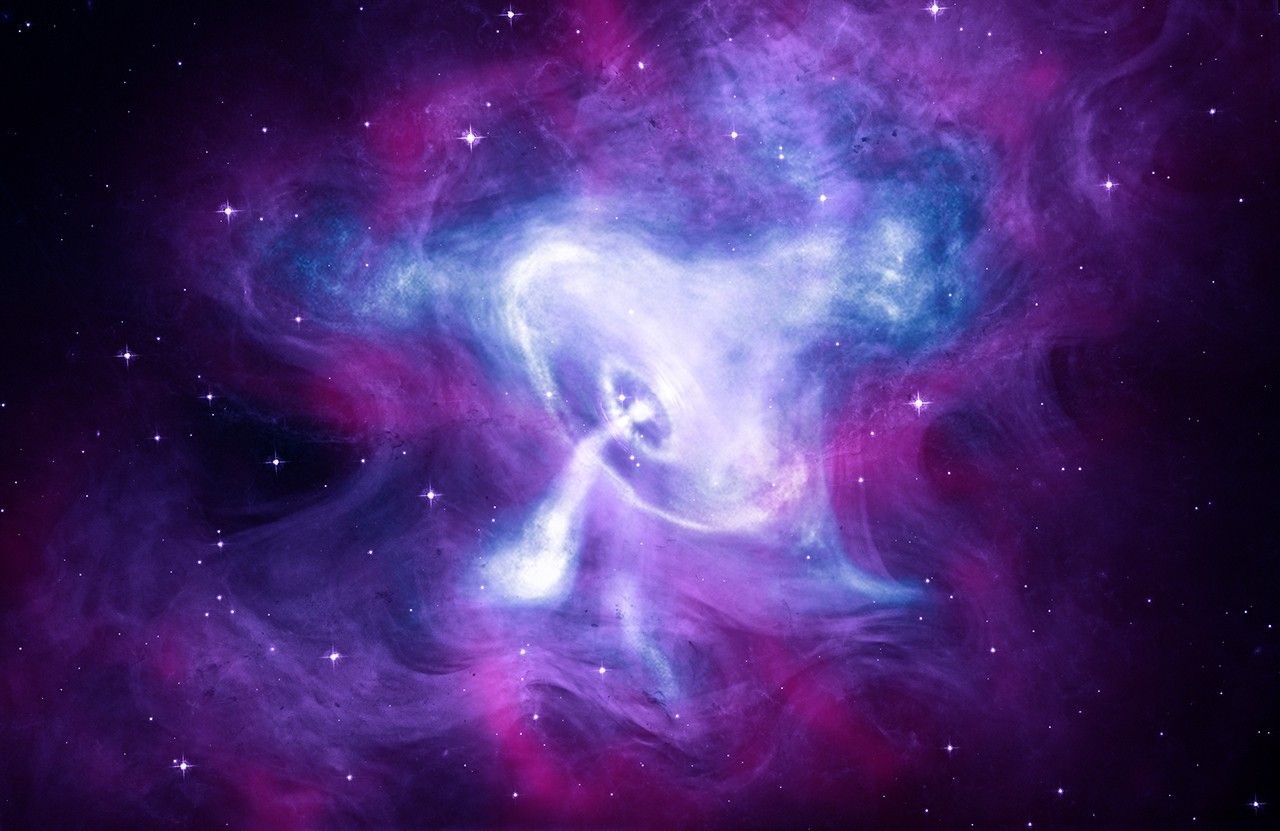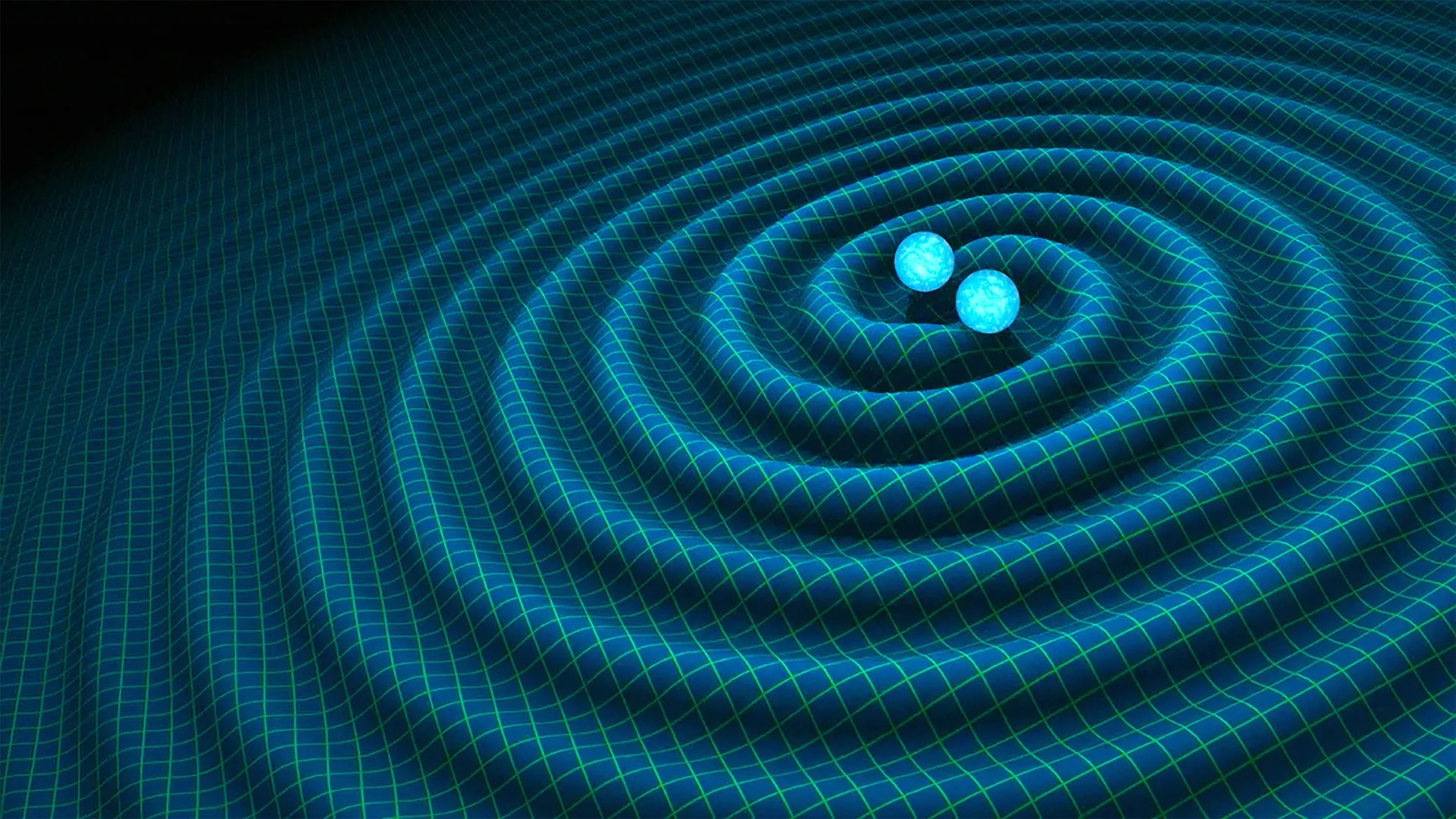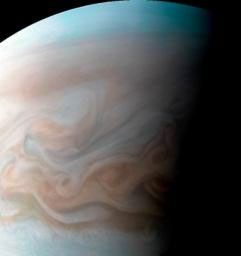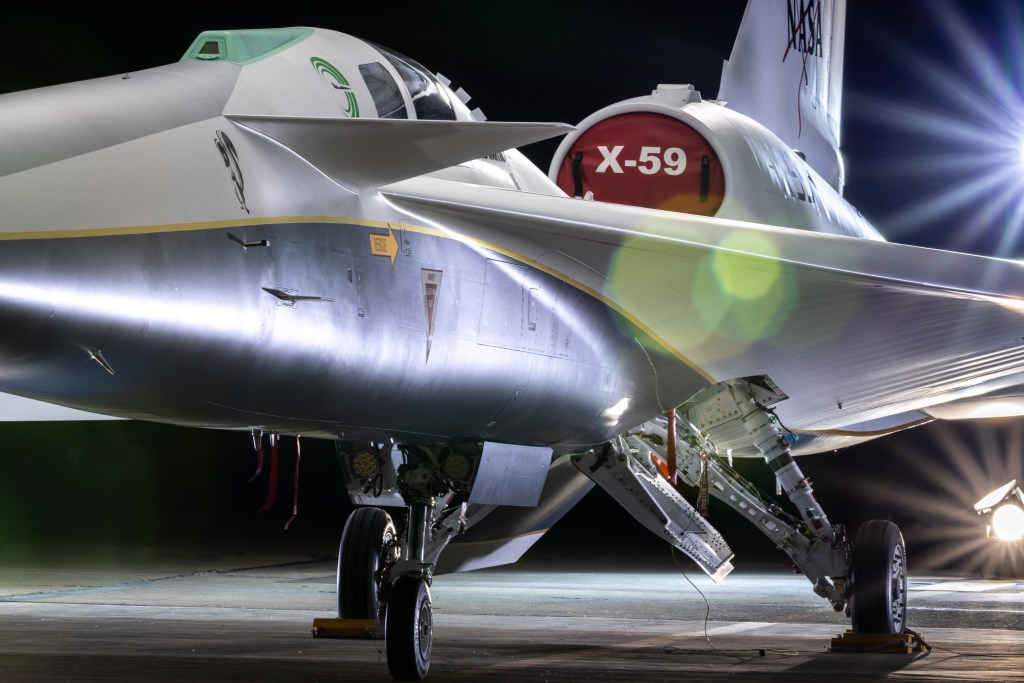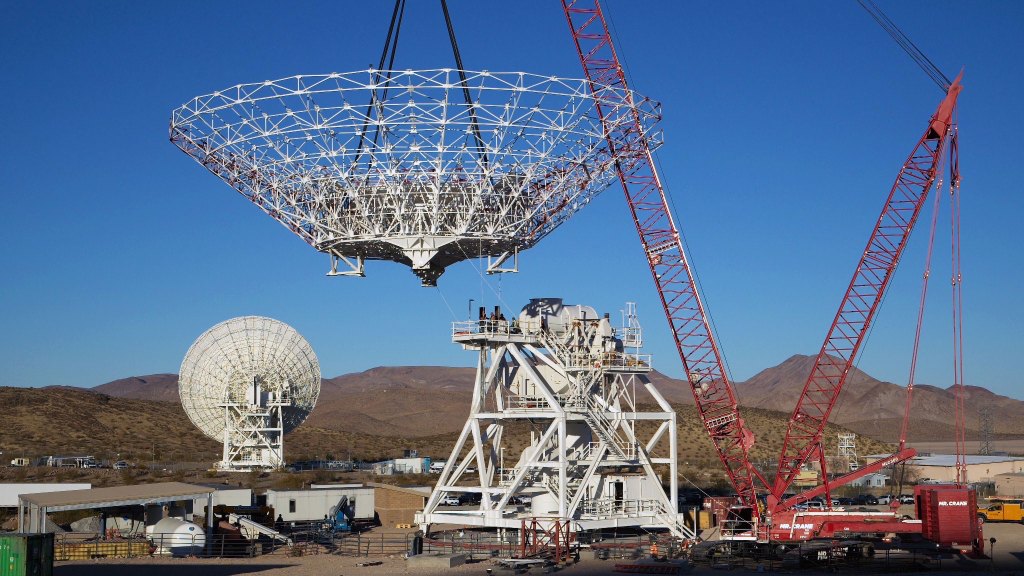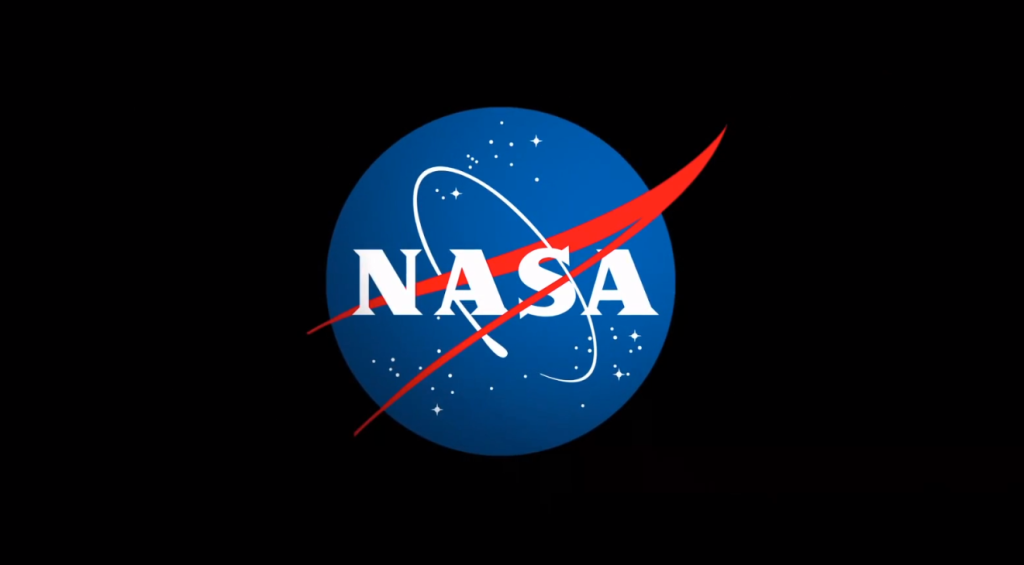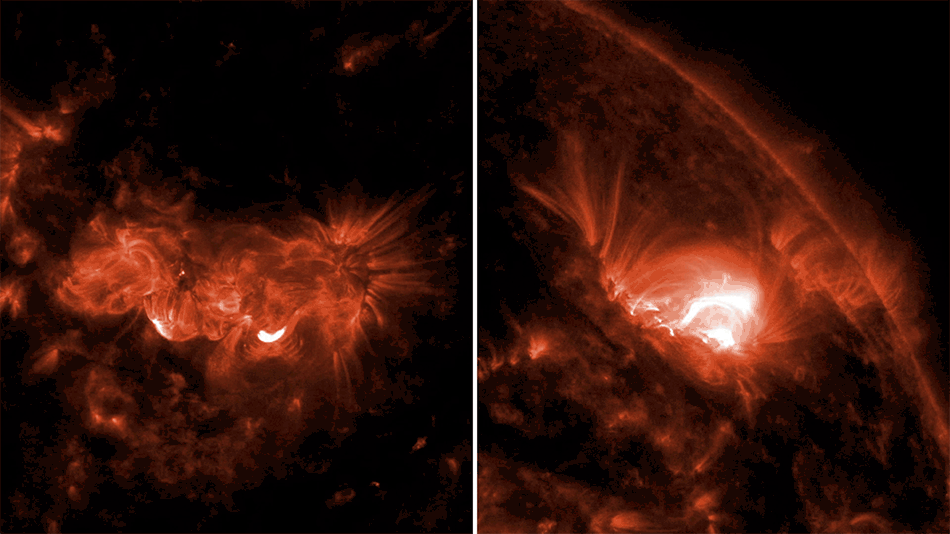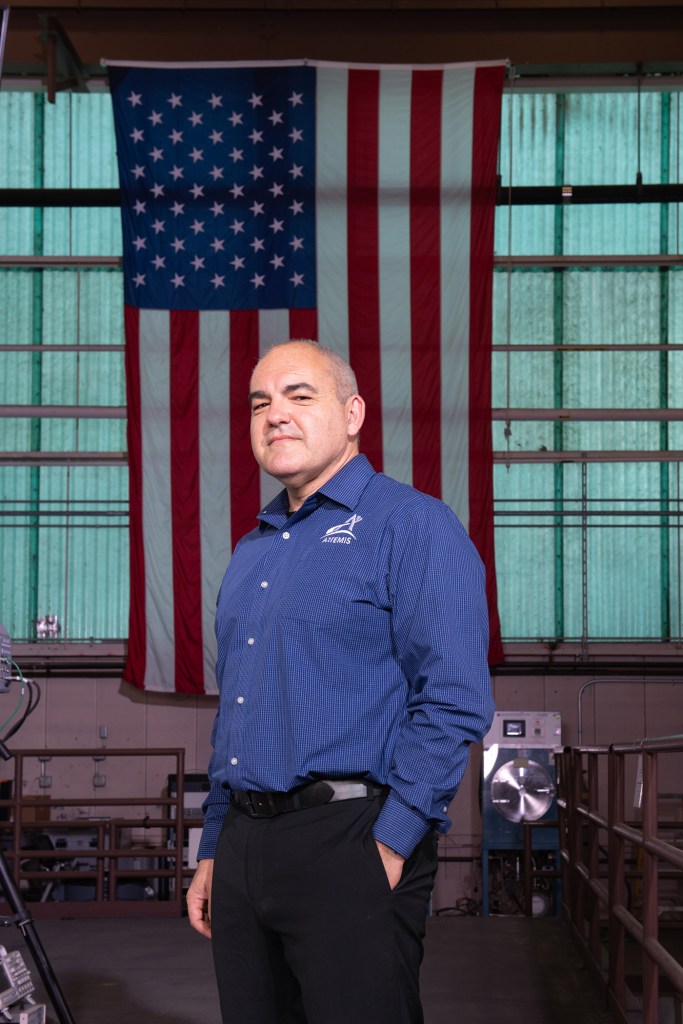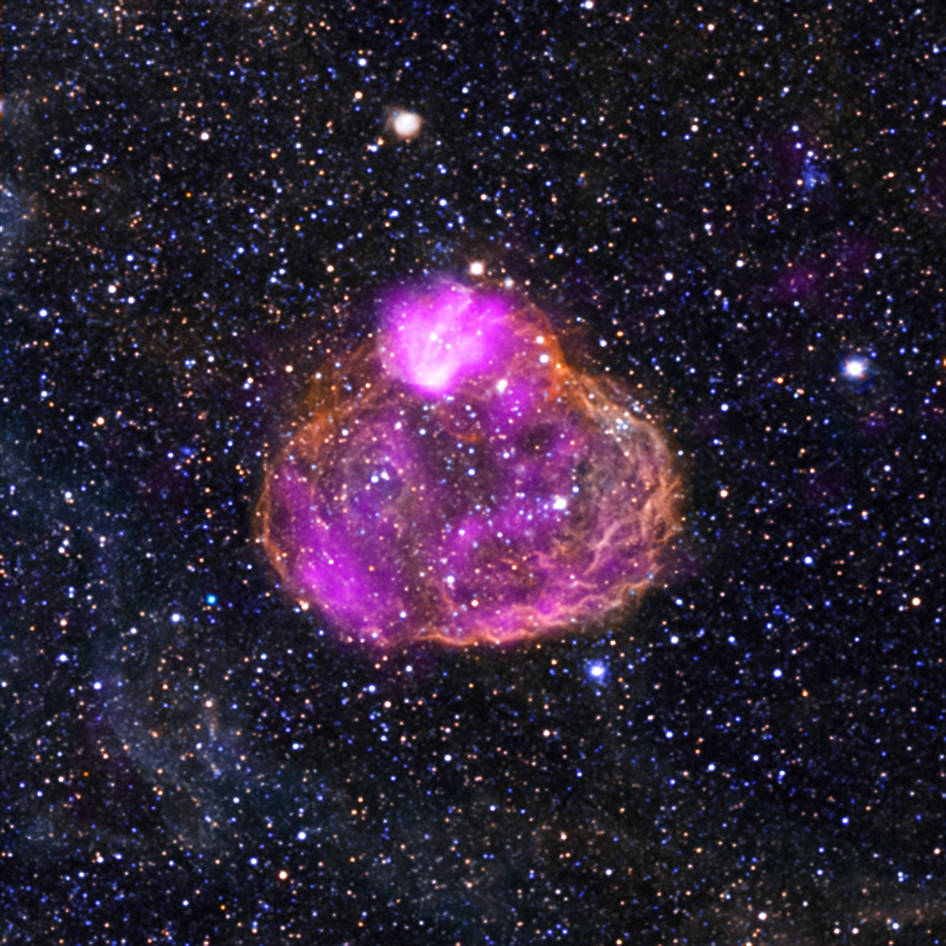
A superbubble located in the Large Magellanic Cloud about 160,000 light years from Earth.
DEM L50 (a.k.a. N186) is what astronomers call a superbubble. These objects are found in regions where massive stars have formed, raced through their evolution, and exploded as supernovas. The winds and shock waves from the supernovas carve out huge cavities in the gas and dust around them, creating superbubbles. This composite contains X-rays from Chandra (pink) and optical data from ground-based telescopes (red, green, and blue). The superbubble in DEM L50 is giving off about 20 times more X-rays than expected by standard models. Researchers think supernova shock waves striking the walls of the cavities and hot material evaporating from the cavity walls may be responsible for this additional X-ray emission.
Image Credit: NASA
- X
https://www.nasa.gov/image-detail/a-superbubble-located-in-the-large-magellanic-cloud-about-160000-light-years-from-earth/
Image CreditNASA
Size946x946px

